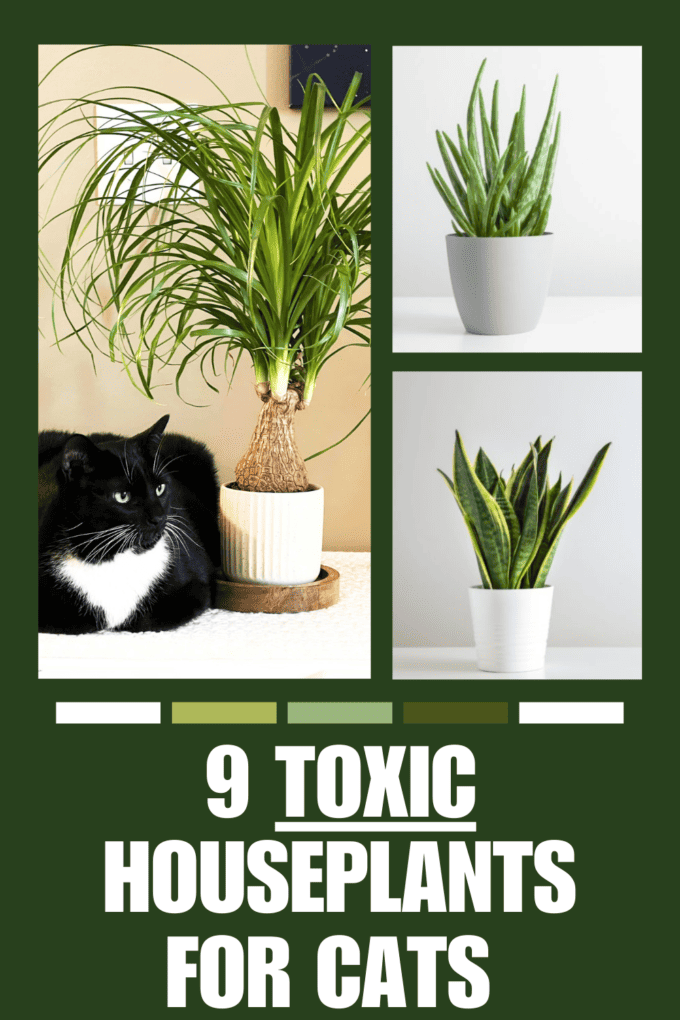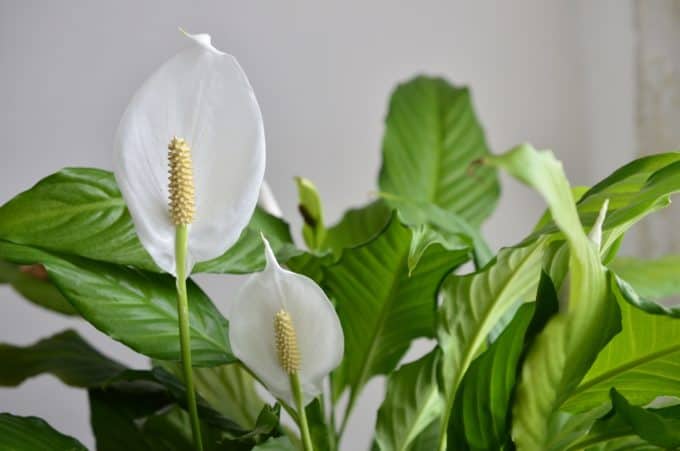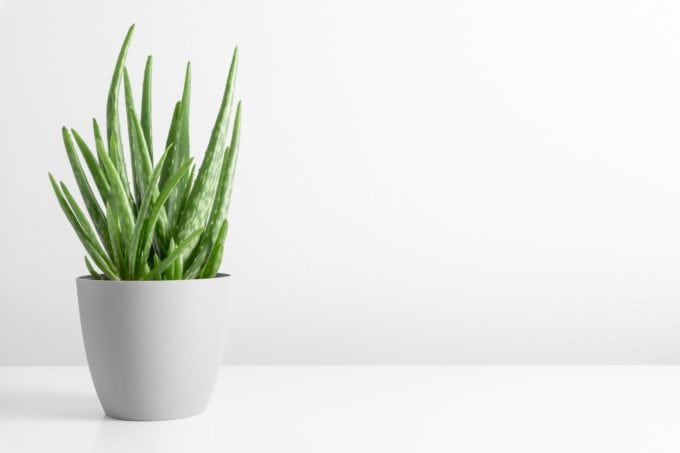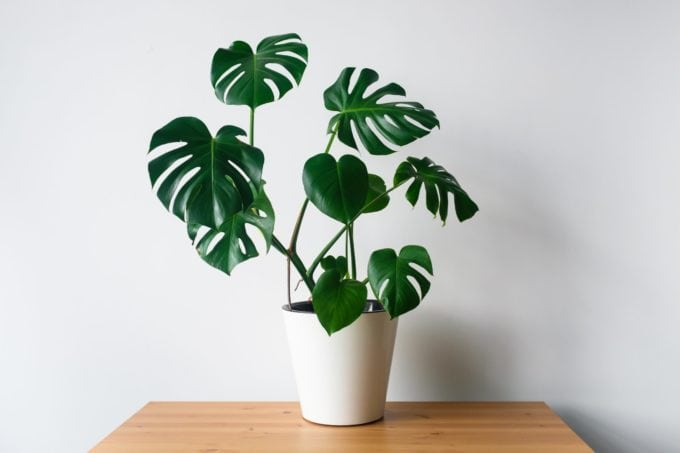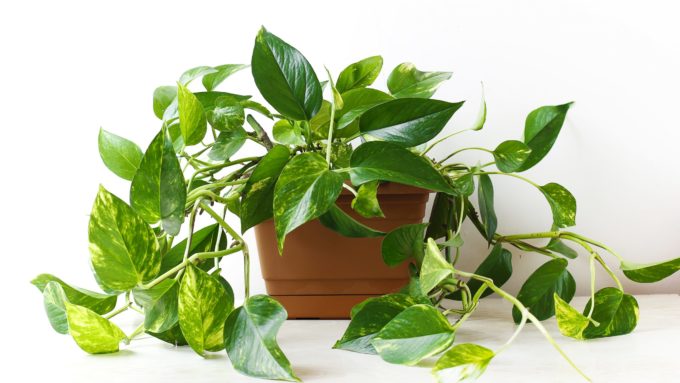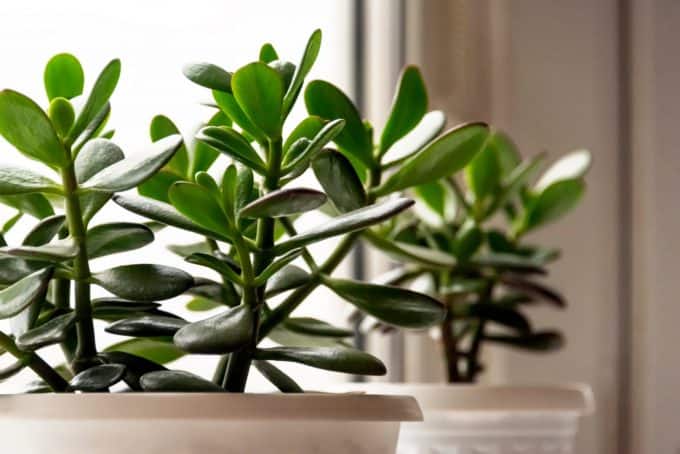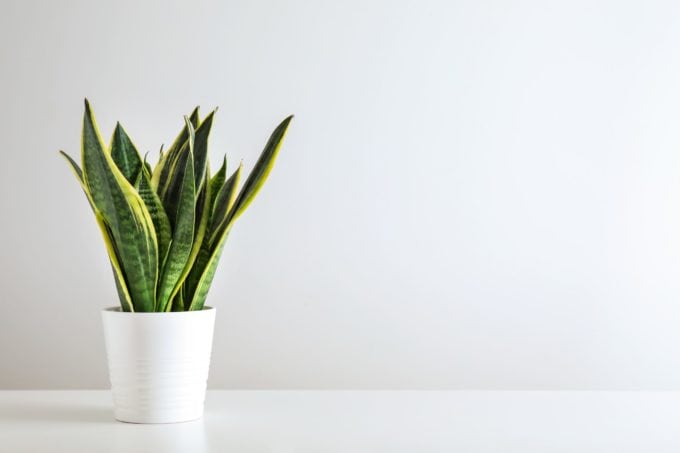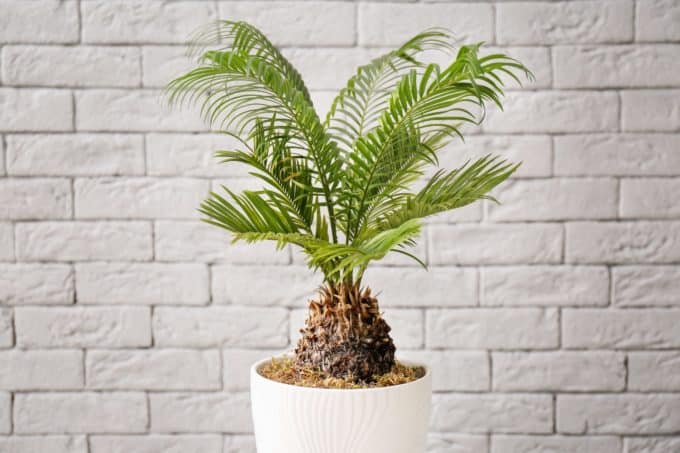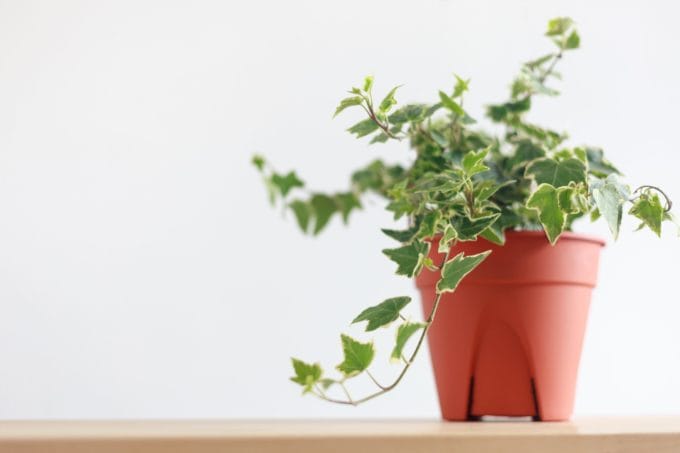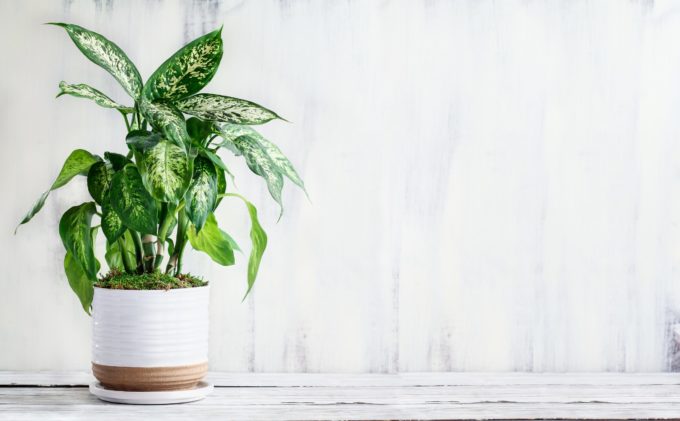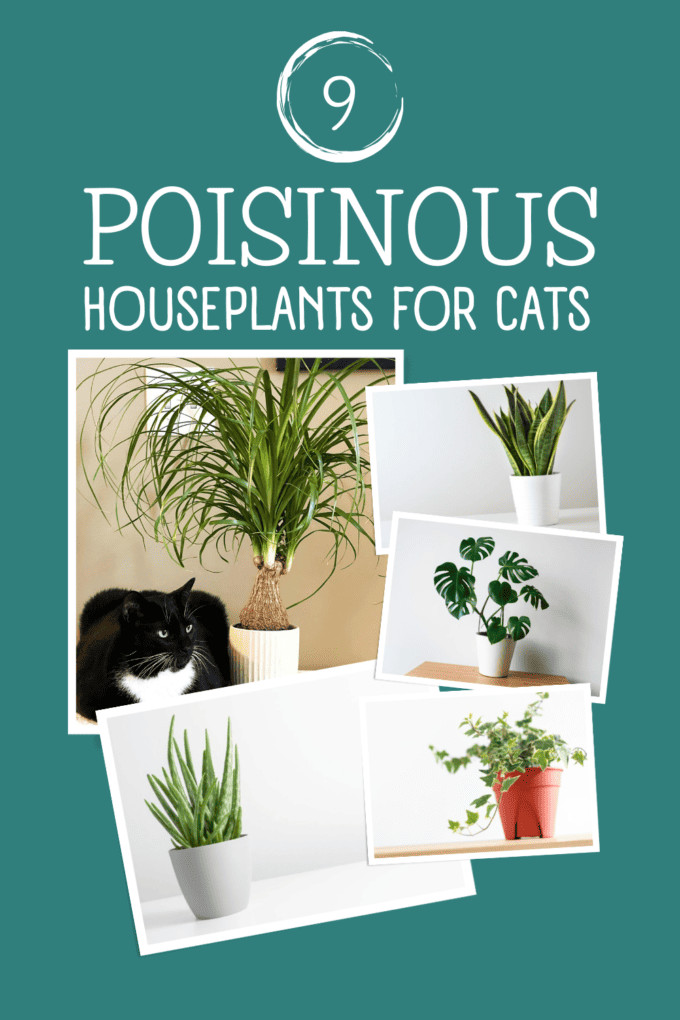9 Common Poisonous and Toxic Houseplants for Cats
If you’re anything like me, your cats are like your children.
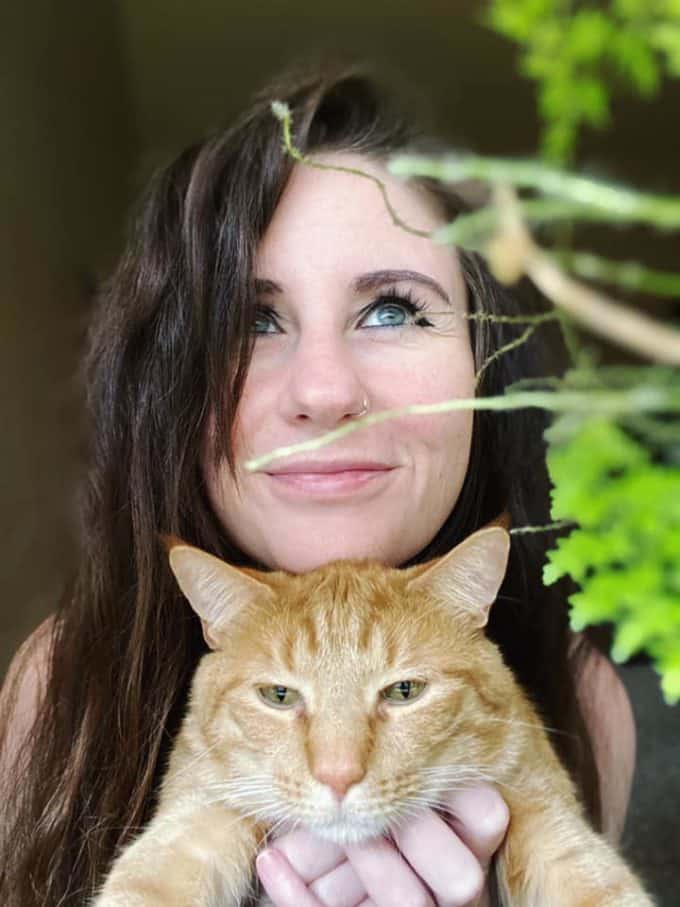
Karat
My three rescue cats – Prada, Gucci, and Karat – are my little babies that I’d do just about anything for.
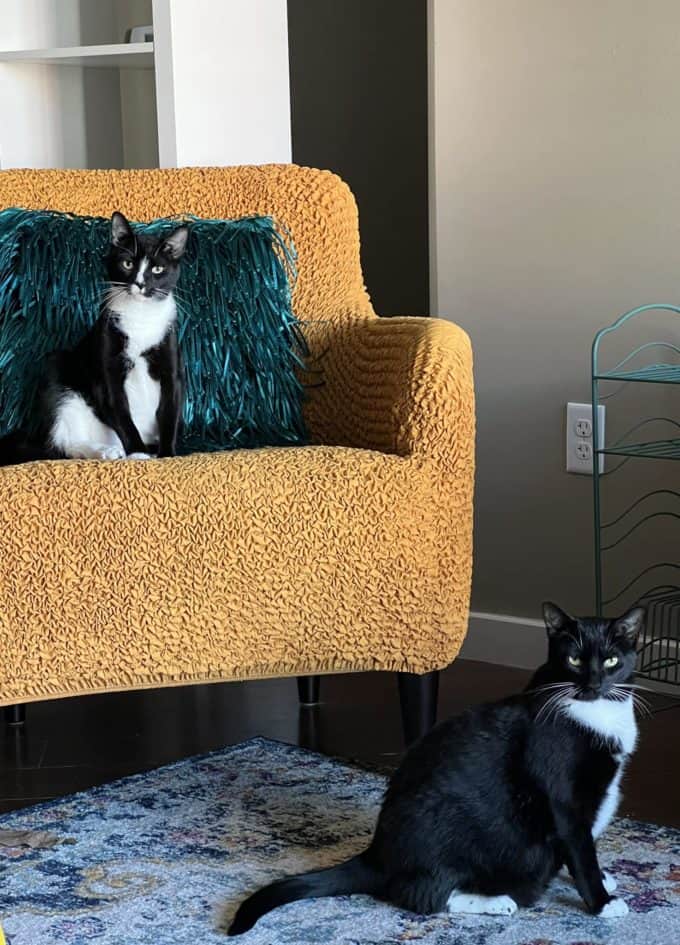
Gucci & Prada
I also have a great passion for houseplants, as evidenced by the fact that my small apartment currently houses more than 60 of them (true story). However, I recently became aware that some of the plants I own are actually poisonous to cats.
Why Learning About Toxic Houseplants is Important
Understanding toxic houseplants is crucial for cat owners, as common indoor plants can harm curious cats who might chew on them. These plants can lead to health issues, from irritation to severe toxicity. Educating ourselves about these harmful plants and taking precautions ensures a safer environment for our feline friends, promoting their well-being.
I took it upon myself to investigate the difference between poisonous and non-toxic plants, as I am deeply concerned with the safety and well-being of my beloved cats.
For today’s post, I would like to share with you nine common plants that can pose a threat to our furry feline friends.
9 Common Poisonous Houseplants for Cats
Peace Lilies (Spathiphyllum)
Peace lilies are a popular choice for spring decor due to their white flowers, dark leaves, and low maintenance requirements. However, it is important to keep in mind that they contain calcium oxalates, which can cause vomiting, mouth and gastrointestinal tract irritation, excessive drooling, and in severe cases, difficulty swallowing or breathing if ingested.
- Toxic Properties: Insoluble calcium oxalates
Aloe Vera
Aloe vera plants are a common presence in many households. Their gel, extracted from the leaves, has gained popularity due to its healing properties. The plants are characterized by their thick, succulent-like leaves with jagged edges, which grow upwards from a rosette-like base. Despite their potential therapeutic benefits for humans, Aloe can be toxic to cats and can cause lethargy, vomiting, and diarrhea if ingested.
- Toxic Properties: Saponins, anthraquinones
Cutleaf Philodendron (Monstera Deliciosa)
Monstera deliciosa, commonly known as “Swiss cheese plant” or “Split-leaf philodendron,” is a tropical houseplant that is widely popular in social media and home decoration due to its stunning tropical foliage. However, it is essential to note that Monstera deliciosa contains insoluble calcium oxalates that can be highly toxic to cats. If consumed, cats may experience symptoms such as burning of the lips and mouth, excessive drooling, oral swelling, and vomiting.
- Toxic Properties: Insoluble calcium oxalates
Pothos (Epipremnum aureum)
Pothos, an increasingly popular houseplant, is a low-maintenance option that appeals to both novice and experienced plant owners. However, it’s worth noting that while pothos is safe to touch, it can pose a serious health risk to pets if ingested. If your cat consumes pothos, it can result in burning of the mouth and lips, vomiting, and swelling of the oral cavity. As a result, it’s essential to keep this plant out of reach of your furry companions.
- Toxic Properties: Insoluble calcium oxalates
Jade Plants (Crassula)
Jade plants, also referred to as “money plants” or “dollar plants,” are part of the Crassula family and are a kind of succulent that is simple to cultivate. They are recognized by their dark green, fleshy leaves and thick, wood-like stems. Nonetheless, they can cause vomiting, lethargy, depression, and lack of coordination if ingested and are highly poisonous to cats, dogs, and horses.
- Toxic Properties: Unknown
Snake Plants (Sansevieria trifasciata)
Snake plants, also referred to as “mother-in-law’s tongue,” are recognized for their ability to thrive in low-light environments and purify the air. This makes them a favored option for indoor plants. While snake plants pose no harm to humans, they are toxic to cats and dogs, potentially causing symptoms such as vomiting, nausea, and diarrhea if ingested, as reported by the ASPCA.
- Toxic Properties: Saponins
Sago Palm (Cycas revoluta)
Sago Palms are a great way to add a tropical touch to your home decor. Not only do they enhance the aesthetic appeal of your space, but they also aid in improving indoor air quality. However, it’s crucial to note that Sago Palms can be extremely harmful to our furry companions as they possess an ancient defense mechanism. If your cat ingests any part of the plant, it can lead to severe health complications such as vomiting, diarrhea, liver failure, and even death. As a result, it’s advisable to refrain from keeping Sago Palms at home if you have cats.
- Toxic Properties: Cycasin
English Ivy (Hedera helix)
English ivy, with its dainty foliage, is a popular houseplant, often suspended in hanging pots due to its graceful appearance. However, it poses a severe threat to cats who may find it a tempting treat as the plant is toxic to them. Ingesting the ivy can induce a range of symptoms, such as weakness, vomiting, abdominal pain, excessive drooling, and diarrhea. Therefore, it is crucial to keep curious felines away from this plant to ensure their safety.
- Toxic Properties: Triterpenoid saponins
Dumb Cane (Dieffenbachia)
Dumb canes, also referred to as Dieffenbachias, are a favored houseplant that requires minimal upkeep and showcases beautiful tropical foliage. Nevertheless, it is vital to recognize that dumb canes are toxic to cats if ingested and their sap can cause mild skin irritation, so it should be kept away from bare skin. Symptoms of dumb cane poisoning in cats include vomiting, oral irritation, burning of the mouth, and in severe cases, difficulty swallowing or breathing. It is crucial to note that these symptoms can occur annually or more frequently, so it is important to take precautions when handling dumb canes.
- Toxic Properties: Insoluble calcium oxalates, proteolytic enzyme
A Reminder for Poisonous and Toxic Houseplants for Cats
Always contact your veterinarian if you have any worries or concerns regarding plant ingestion from your kitties!
Founder of Mom Sparks – a lifestyle blog for moms.


